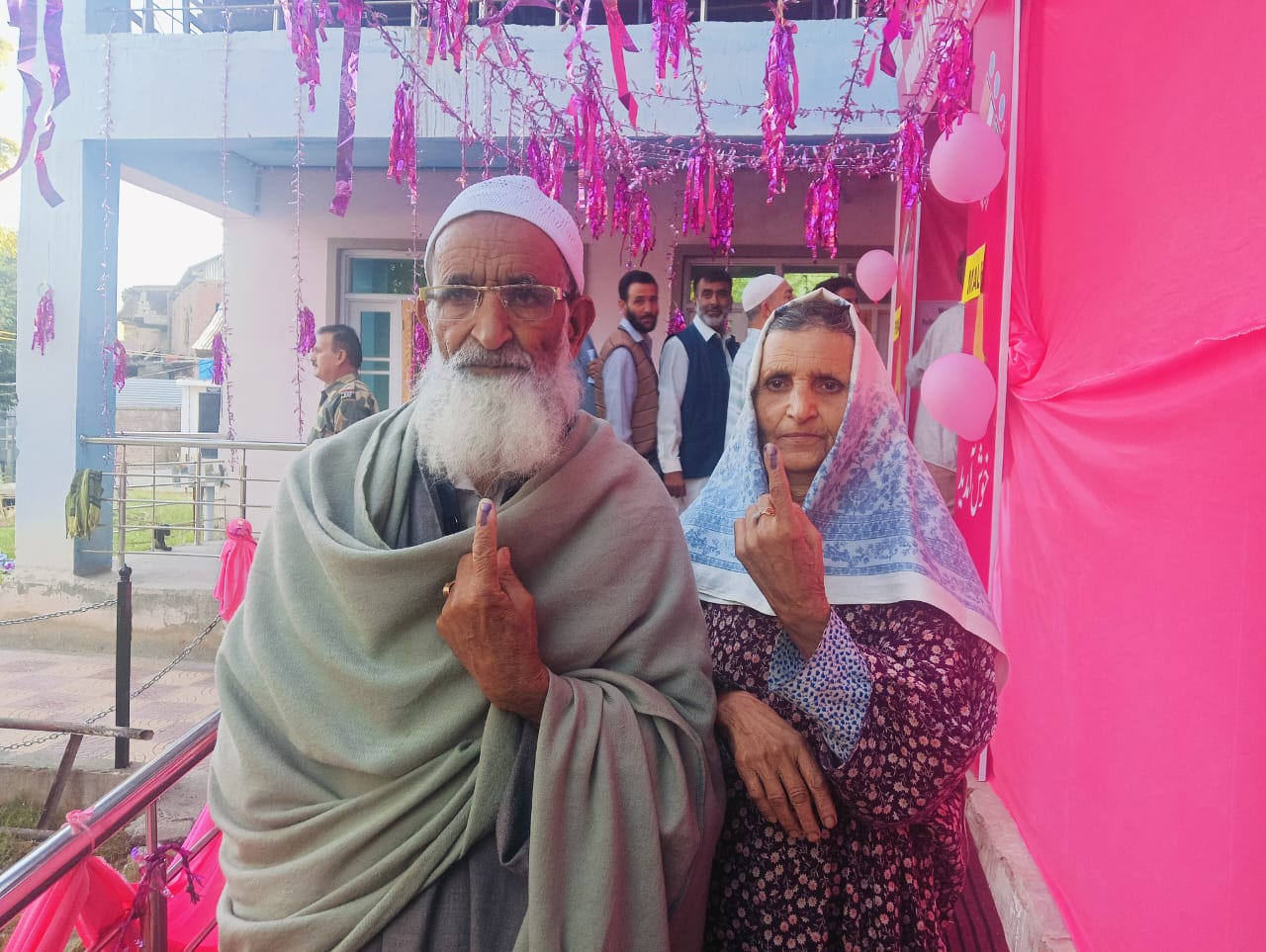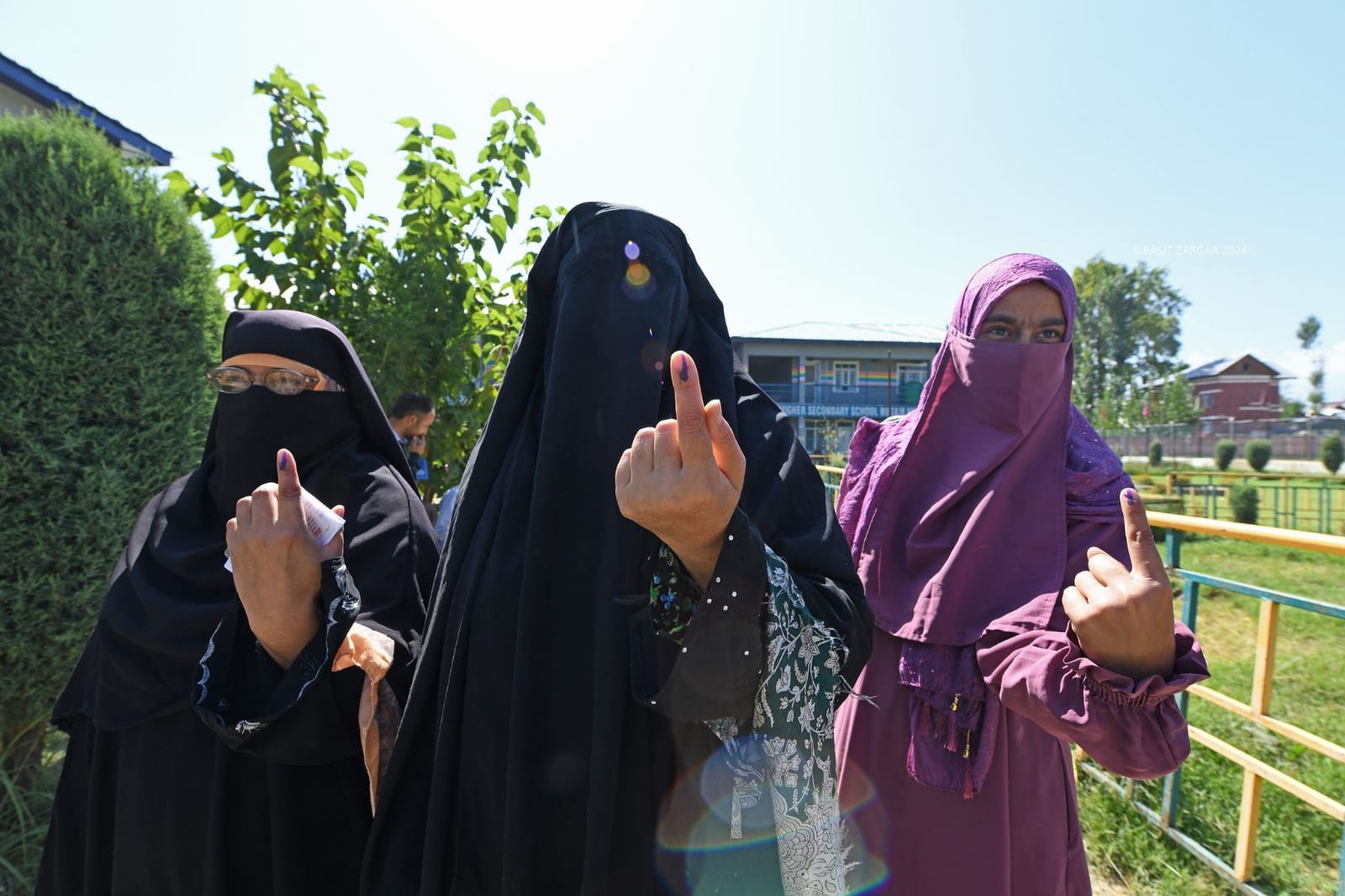Ten years after its last assembly elections, Jammu and Kashmir faces a watershed moment. With political heavyweights like the National Conference and PDP pitted against newer challengers, the election reflects the shifting dynamics of the region.
By Tauheed Ahmad
The elections are once again on the horizon in the Union Territory of Jammu and Kashmir, marking a crucial political event, ten years after the last one. This election holds great significance as it is the first since the bifurcation of the former state into two Union Territories—Ladakh and Jammu & Kashmir—in August 2019, following the historic revocation of Article 370. The region’s political landscape is charged, with a plethora of political parties and leaders vying for influence, and the stakes have never been higher.
Political heavyweights from traditional parties like the National Conference (NC) and the People’s Democratic Party (PDP) are facing new challengers, as newer parties like Apni Party, Jammu and Kashmir Peoples Conference (PC), and the Awami Itehad Party, led by Engineer Rashid, enter the fray. Engineer Rashid, who was recently released on bail, is already creating waves, having won a North Kashmir parliamentary seat while still incarcerated. Meanwhile, the officially banned Jamaat-e-Islami and various smaller parties have further fragmented an already complex political environment. This multifaceted contest has become a battle of not only ideas but also promises and allegations, with regional leaders and national parties alike watching the unfolding drama with intense interest.
The electoral battleground is defined by a range of issues, with key themes including the restoration of Article 370, protection of Kashmiri identity and rights, regional development, and economic growth. The NC and PDP continue to call for the restoration of special status for Jammu and Kashmir, while the newer parties emphasize development, governance, and the economic future of the region. The election, therefore, represents a collision of traditional aspirations with new political realities, setting the stage for a historic contest.
The stakes are high, and so too are the security concerns. In response to heightened threats, thousands of additional troops have been deployed across the region to ensure a peaceful voting process. Security has been bolstered particularly in sensitive areas like Doda and Kishtwar, which have recently seen a rise in terrorist activity. Drone surveillance and stringent security measures are in place, reflecting the gravity of the situation. Polling stations are fully equipped, and new voter verification processes have been implemented to prevent electoral malpractices. A record number of 458 candidates are contesting the first two phases of the assembly polls, with 44 percent of them being independent candidates.
The three-phase election, scheduled for September 18, September 25, and October 1, is taking place against a backdrop of renewed terrorist activity, particularly targeting Kashmiri Pandits, BJP workers, and migrant laborers from states like Bihar and Uttar Pradesh. According to intelligence reports, terrorists are aiming to create fear and disrupt the electoral process. Security forces, including those stationed along the Line of Control (LoC) and in border areas, have been ramped up to counter these threats. The Bharatiya Janata Party (BJP), in particular, has enhanced security at its offices and election venues following terror threats against its workers and campaign events.
The Village Defence Guards (VDGs), trained by both the Indian Army and the Jammu and Kashmir Police, are also playing a crucial role in maintaining security, especially in rural and forested areas. These citizen defense forces are acting as a supplementary layer of protection, supporting both the police and military in safeguarding the region during this critical election period.
This election represents more than just a political milestone; it is a decisive moment in the ever-evolving narrative of Jammu and Kashmir, one that will likely have far-reaching implications for both the region and India’s broader political landscape.
Recently, two Jaish-e-Mohammed (JeM) terrorists were neutralized in a fierce encounter along the Kathua-Basantgarh border in Udhampur district, further highlighting the ongoing security threats in Jammu and Kashmir. In another incident, a soldier from the Border Security Force (BSF) sustained injuries due to unprovoked firing by Pakistani forces in the Akhnoor sector, underscoring the persistent tensions along the Line of Control. The security situation remains precarious, with recent encounters resulting in the tragic loss of two soldiers, including a Junior Commissioned Officer (JCO), during an operation against terrorists in Kishtwar.
On September 14th, Prime Minister Narendra Modi made a historic visit to Doda, his first in nearly 40 years. As his rally drew to a close, three terrorists were killed in an overnight encounter in the Pattan area of Baramulla district in North Kashmir, marking another grim reminder of the ongoing violence in the region. So far this year, 70 fatalities have been reported in Jammu and Kashmir, including 41 terrorists, 20 security personnel, and 18 civilians. Even in the relatively peaceful Jammu region, statistics from the South Asia Terrorism Portal reveal that over the past three years, 50 soldiers have lost their lives, highlighting the ever-present threat in the area.
During his rally in Doda, Prime Minister Modi launched a sharp critique of the Congress, National Conference (NC), and People’s Democratic Party (PDP), accusing these parties of perpetuating “dynastic politics” in Jammu and Kashmir. He declared, “This assembly election in Jammu and Kashmir is between three families and the youth,” condemning the political dynasties for stalling progress and suppressing new leadership. Modi also emphasized that his government, since coming to power in 2014, has focused on promoting youth leadership through Panchayat, Block Development Council (BDC), and District Development Council (DDC) elections, accusing the traditional parties of “hollowing out” the region through nepotism.
Taking a swipe at former Union minister Sushil Kumar Shinde, Modi recalled how Shinde had once expressed fear of terrorists during his visits to Jammu and Kashmir. The Prime Minister contrasted this with the current security situation, saying, “Do you remember when an unofficial curfew would be enforced whenever the sun went down?” He used this comparison to illustrate the improvement in security under his administration.
This upcoming assembly election will be the first in Jammu and Kashmir since the revocation of Article 370. The region now has 90 constituencies, with seven reserved for Scheduled Castes (SC) and nine for Scheduled Tribes (ST). A total of 88.06 lakh eligible voters will have the opportunity to participate in this historic election. In the last assembly elections, the PDP secured 28 seats, the BJP 25, the NC 15, and the Congress 12.
Union Home Minister Amit Shah, in a rally held in the Paddar-Nagseni Assembly constituency of Kishtwar on September 16, firmly declared that as long as Prime Minister Modi’s government remains in power, terrorism will not return to the levels witnessed in the 1990s. Shah vowed to eradicate terrorism, stating, “We will push terrorism several feet below the ground, and it will not erupt again.” He criticized NC leader Dr. Farooq Abdullah for his absence during the peak of violence in Kishtwar, accusing him of being abroad while the region suffered.
Shah further attacked the NC-Congress alliance, blaming them for fostering terrorism and separatism in Jammu and Kashmir. He accused these parties of orchestrating the forced exile of Maharaja Hari Singh and the mass exodus of Kashmiri Pandits in 1990. Shah’s rally was his second visit to the Jammu region in a matter of days, reflecting the BJP’s strong focus on the region.
He also emphasized the role of Village Defence Guards (VDGs) and Special Police Officers (SPOs) in combating infiltration, noting that they have been equipped with advanced weapons and granted additional powers to confront terrorists. “Infiltrators who come here to disrupt peace will be buried in the mountains,” Shah declared, underscoring the government’s commitment to maintaining security in the region.
On the subject of terrorism and Article 370, Shah left no room for ambiguity. He firmly stated that Article 370, which granted special status to Jammu and Kashmir, “is a part of India’s old chapter.” The crowd responded enthusiastically when Shah asked if they wanted the NC-Congress alliance to regain power, with a resounding “No.” Shah went on to challenge the alliance’s ability to restore Article 370 and reiterated that neither terrorism nor the abrogated article would return.
Taking aim at National Conference Vice President Omar Abdullah, Shah mocked his earlier declaration not to contest elections in the Union Territory, only for Omar to later announce his candidacy for two seats. Shah boldly predicted Abdullah’s defeat, stating, “You cannot win from either seat,” delivering a sharp political blow aimed at weakening Abdullah’s influence in the upcoming elections.


Leave a Reply